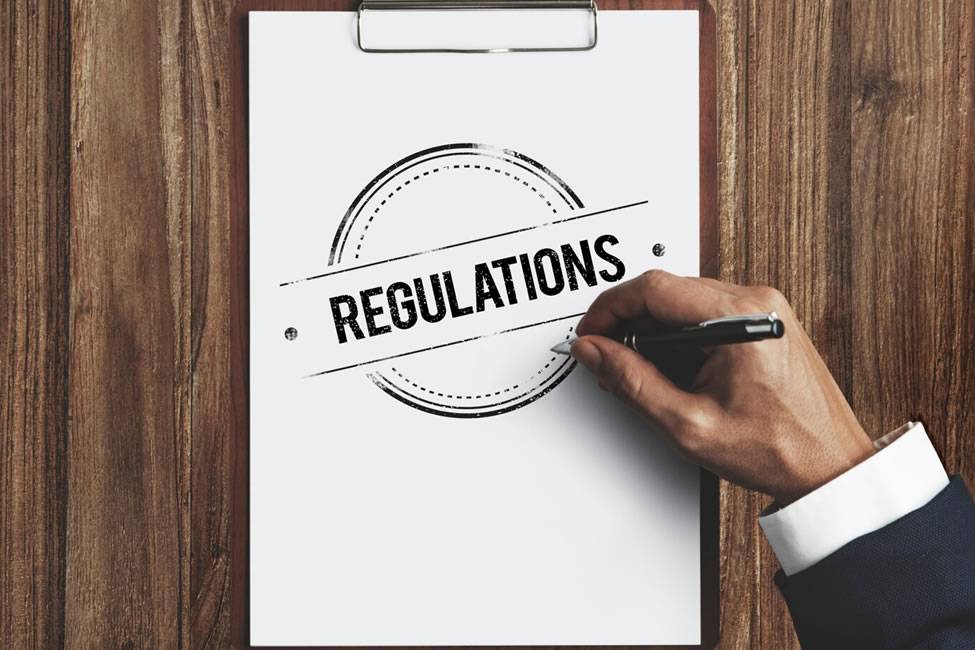Gambling laws around the world: How different countries regulate casinos
- 11-06-2024
- Business
- collaborative post
- Photo Credit: Freepik
Regulatory frameworks for gambling and the iGaming industry have been around since the early 2000s. As this industry grew and changed, these laws followed suit. The idea behind these laws was to make the activity safe for players and to ensure the games are fair and transparent.
This is why even if you play on a site that is not regulated locally, you are still much safer than if you play on an unregulated website. There are plenty of remote brands that even accept players who are in other parts of the world. Nowadays, it’s possible to find Irish casinos that are managed by companies outside of Europe. This allows players to experience different games, claim generous promos, and even use cryptocurrency for gambling. They are especially popular among bettors who are always looking to get better odds on certain matches or events.
Even though the virtual gambling world is borderless, where you play will make a difference, depending on the regulator. So, let’s see how gambling laws are structured in different parts of the world.
IRELAND AND UK
Let’s start with one of the more recent changes in the regulatory landscape in Europe. In December 2022 the Gambling Regulation Bill 2022 was drafted and it proposed a new monitoring body in Ireland. This bill aims to establish GRAI (Gambling Regulatory Authority Ireland) and have it up and running in 2024. The duties of GRAI are the following:
● Establish standards for casinos, sportsbooks, and other gaming products
● Issue licenses, oversee and manage gambling activities in the country
● Enforce compliance law and take measures against companies that breach this law
● Creation and upkeep of the National Gambling Exclusion Register
● Training staff to monitor and identify suspicious activity within the sector.
Before this law was passed there wasn’t a body that acted as an equivalent to UKGC. The regulator in the UK has been around since 2005 and their online gambling laws were inspired by the ones drafted in Malta.
SPAIN
Online gambling has been regulated in Spain since 2012, and they have a very liberal stance on this form of entertainment. The regulator is the Directorate General for the Regulation of Gambling (DGOJ) and they issue licenses for online sports betting, casino games, card games, and lottery. That being said, certain regions in Spain have established local regulators, so operating also necessitates that license.
POLAND
In Poland, the laws for online betting and lottery are pretty liberal, but the same cannot be said for online casinos. In fact, the state has a monopoly on this form of entertainment, as only government-owned sites are labelled as legitimate providers of online casino games. This arrangement isn’t unique to Poland, as Hungary, Austria, and Finland have a similar approach.
MALTA
Malta was among the first countries in the world to set up a regulatory infrastructure for all forms of online gambling. Not only that but their tax laws are more lenient compared to other EU jurisdictions so they’ve attracted many tech companies with this move.
KOSOVO
Currently, Kosovo is the only EU territory where casino gambling is illegal. There is an active 10-year ban there in order to fight organized crime.
CHINA
Apart from state-operated lotteries gambling is illegal in China. This doesn’t apply to Macau which is one of the biggest casino cities in the world. That being said they only permit land-based casinos and don’t have the framework for regulating online gaming.
UNITED STATES
In the US, the Federal Law states that gambling is legal, but it does impose restrictions on online casinos, and sportsbooks. That being said, each state can regulate the activity in a way that they see fit. This is why, certain states like New Jersey, Connecticut, Michigan, Delaware, West Virginia and Pennsylvania, allow remote casino games. Others only allow land-based business models and some allow only online sportsbooks and brick-and-mortar gambling hubs.
There are also states where casinos are illegal, and allow them only in tribal reservations. One form of gambling that isn’t clearly defined and escapes some of the restrictions is fantasy sports. These are only illegal in Idaho, Hawaii, Montana, Washington and Nevada.
There are also regulatory standards for casino games pertaining to RTP, the speed of the game, and how these products can be advertised. For example, in Nevada, slot RTP cannot go below 75%. Additionally, companies tend to follow standards when optimising for mobile devices, and when picking software companies for their sites. These software suppliers are also regulated and tested for fairness.
AUSTRALIA

The main online gambling law in Australia prohibits online casino games, instant lotteries and live betting. Also, any form of online gambling without a license issued by an authority on that territory is illegal. Each Territory Authority in Australia can regulate gambling independently. In essence, almost all forms of gambling are allowed so long as the provider has an adequate license.
OFFSHORE REGULATIONS
Multiple countries fall under this category Gibraltar, Panama, Curacao, Isle of Men, and Antigua and Barbuda, are some examples.
Offshore authorities use a similar framework when monitoring operators. What’s different here is that there’s more leniency in terms of advertising restrictions and payment processing. Many offshore licenced brands actually accept cryptocurrencies like Bitcoin and other stablecoins. These are reliable, non-volatile currencies that don’t have the same limitations as fiat currency when it comes to cross-border payments. However, they still perform KYC and AML checks, just like EU-regulated brands.
Because these brands are based offshore, they aren’t in the self-exclusion registers that are present in the EU and they tend to accept players from different countries. Still, they do respect EU laws and will restrict players from certain jurisdictions if requested. What’s more, they have agreements with Western regulators when it comes to taxation. In many instances, they pay tax on profits achieved from players from a specific country.
Gamble Responsibly: Gambling should be enjoyed as a form of entertainment, not a way to earn money. Always gamble within your financial means and set limits to stay in control. You must be 18 or older to participate in gambling activities. If you or someone you know has a gambling problem, seek help from organisations like FEJAR (Federación Española de Jugadores de Azar Rehabilitados) at www.fejar.org. Stay safe and gamble responsibly.



























































